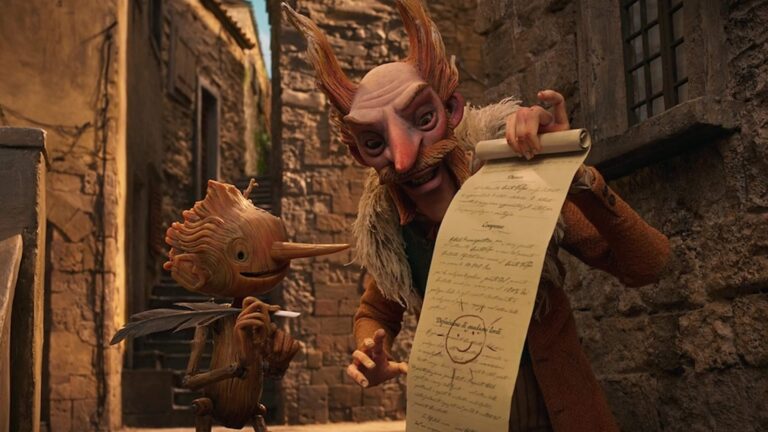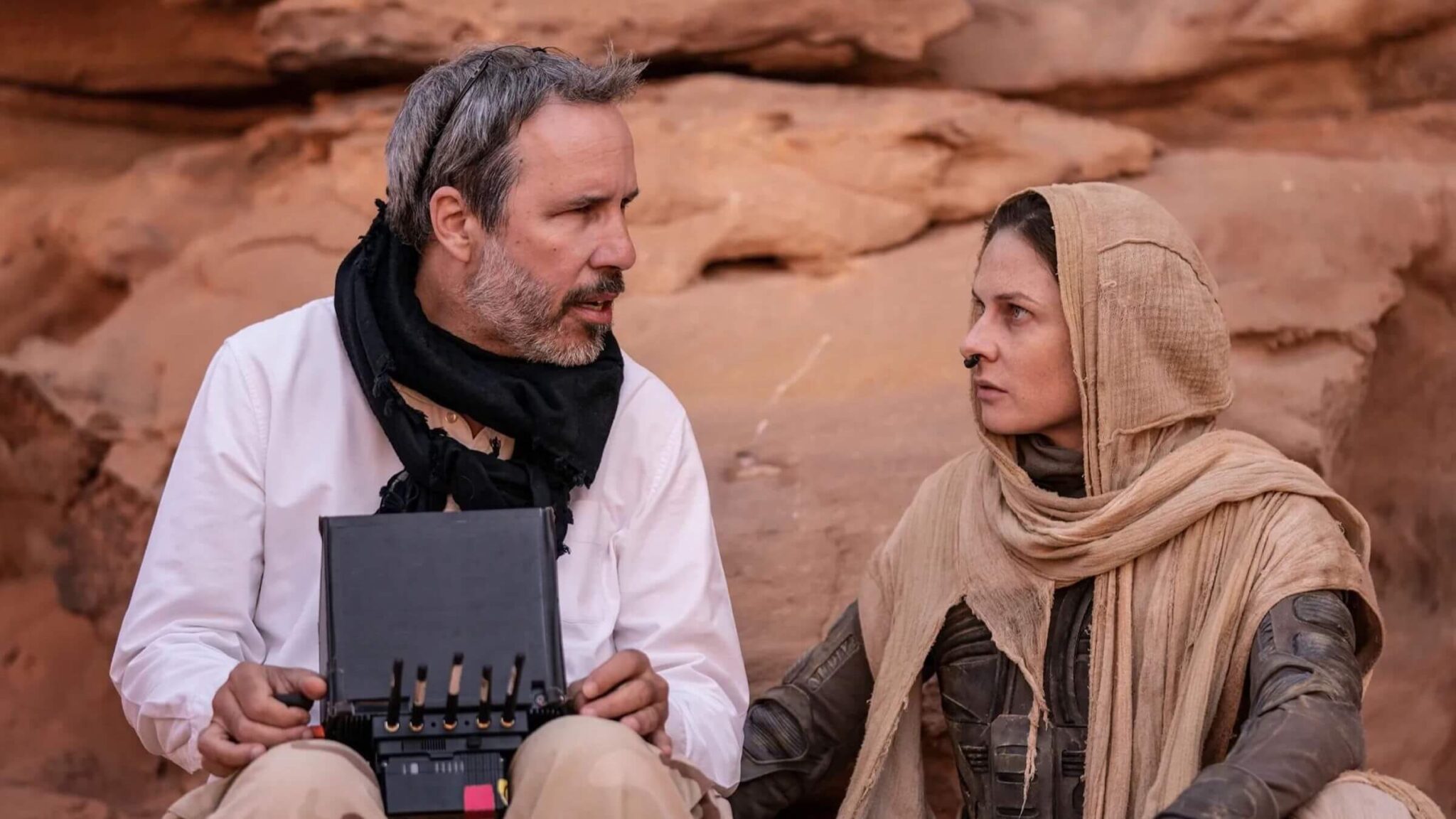Do You Know the Two Types of Plots, According to Aristotle?

Did you know that there are only two types of plots in stories?
According to Aristotle, at least. In his book Poetics — an analysis of tragedy and epic storytelling — he states that there are only two types of plots within the Greek Tragedy paradigm — Simple Plots and Complex Plots.
Aristotle was a Greek philosopher and scientist — known as one of the most significant intellectual figures of all time. He was an intellectual master and authority of not only the sciences but many of the arts well. He wrote papers and books on biology, botany, chemistry, ethics, history, logic, metaphysics, rhetoric, philosophy of mind, philosophy of science, physics, poetics, political theory, psychology, and zoology.
Read More: What is a Plot?
We've previously covered his six golden rules of storytelling.
- Plot
- Character
- Thought
- Diction
- Song
- Spectacle
We applied them to screenwriting, as Aristotle's frame of reference was through poems and the stage.
Read ScreenCraft's Aristotle’s Six Golden Rules Of Screenwriting!
What we didn't focus on was his breakdown of the two kinds of plots that he believed existed. When you put this storytelling philosophy into the context of screenwriting — or any form of fictional storytelling — what he writes makes perfect sense.
Simple Plots
The simple plot is defined as a unified construct of necessary and probable actions accompanied by a change of fortune.
Change of fortune is a crucial aspect of this type of plot — particularly the word change.
This type of simple plot introduces a character (or group of characters) and changes their fortune by introducing an action in the form of conflict or turn of events.
In The Texas Chainsaw Massacre, college kids are traveling in a van through Texas, only to stumble upon a seemingly deserted house. Their fortune is changed when that house is found to inhabit Leatherface and his terrifying family.
There are no major plot developments beyond that. They struggle to survive. Yes, there are indeed some surprises within this simple plot, but they are merely part of the chain of events from what Aristotle calls the incentive moment.
This incentive moment is what starts the cause-and-effect chain of the plot. Aristotle stresses that this chain is a unified action, where all of the action within the plot is connected to all other actions. Then the subsequent actions are the probable and necessary outcomes of the former. And so on.
When the kids are low on gas, they stop at a gas station but are told that the tanks are empty. The refueling truck is due shortly, so they stop at a local water hole to kill some time. Some of them stumble upon a deserted house.
One of them calls out to the house, wondering if they have any gas to spare. He then enters the house through an unlocked door. Leatherface suddenly appears and kills Kirk with a hammer.
https://www.youtube.com/watch?v=XrQTEGgKdGo
This is the incentive moment of this simple plot. Everything that happens after this moment is part of the simple cause-and-effect chain.
The friends go looking for their missing friends. They are attacked and struggle to survive. The last one left standing escapes the house and manages to jump into a passing truck as Leatherface chases after her. The truck speeds off, and she has survived.
No major plot twists, reveals, or revelations. There is no reversal in the actions of any of the characters (see below). Beyond their change of fortune — stumbling upon the wrong house — the plot is paper thin. It's simple. But it still works.
However, the change of fortune within a simple plot can be told in reverse as well. A protagonist can go from a bad situation to a good situation as the cause-and-effect chain comes into play after the incentive moment.
In Pretty Woman, Vivian (Julia Roberts) is a prostitute. Needless to say, she's in a bad place as the story begins — until the incentive moment where she is picked up by Edward (Richard Gere).
From that moment on, we watch the cause-and-effect chain take hold. But instead of things getting worse and worse for her, they get better — even when she rejects certain changes for the better at first and even when there are ups and downs within her new surroundings. And in the end, she falls in love.
Once again, it's simple. But it works.
No different than the simple plots of otherwise outstanding movies like Jaws, Raiders of the Lost Ark, Gravity, 127 Hours, and Alien.
Learn the best way to structure your screenplay with this free guide.
Complex Plots
The complex plot is defined as one where the change of fortune is accompanied by a reversal of fortune, recognition, or both.
What this means is that the complex plot shares what the simple plot contains, but adds additional elements to make it more complex.
The reversal of fortune is referred to in Poetics as Peripeteia — a pivotal or crucial action on the part of the protagonist that changes their situation from secure to vulnerable.
The recognition is referred to as Anagnorisis — a moment of insight or understanding the protagonist experiences as they finally comprehend the web of fate that they are entangled within.
In The Sixth Sense, Malcolm (Bruce Willis) tasks himself with helping a troubled young boy. He soon discovers that his approach is wrong. This boy is seeing dead people. He does not have some psychological disorder.
This is the first reversal of fortune for Malcolm. The second occurs at the end of the story when he realizes that he is a ghost haunting the boy. This can be easily paired with the moment of recognition as he finally comprehends the web of fate that he is entangled within.
And sometimes complex plots are viewed not through the eyes of the protagonists, but the eyes of the audience as well.
That combination of Peripeteia and Anagnorisis does not merely affect the characters in the tragedy. They can also extend to the audience or the reader. The unexpected catastrophe and tragedy that the complex plot reveals heightens the audience's feeling of pity and fear — and other related emotions.
We feel for Malcolm when he makes these discoveries. We are surprised and shocked ourselves, but that is heightened by our empathy for the character. That pivotal ingredient of all successful stories — catharsis.
Read ScreenCraft's The Single Most Important Element of a Successful Screenplay!
In A Simple Plan, the story first seems like it's a simple plot, taking the protagonist from a bad place (being poor with a child on the way) to a good place (finding a bag full of money within seemingly undetected plane wreckage in the woods).
However, there's a reversal of fortune that takes places when his dimwitted brother accidentally kills a farmer that may find the location of the wreckage. But that reversal later applies to Hank, the protagonist, as well when he's transporting what he thinks is the farmer's dead body across the farmland to stage an accident. The farmer wakes up, alive, startling Hank. And then Hank is forced to do the unthinkable when the farmer clearly remembers that Hank's brother attacked him.
This leads to a cause-and-effect chain of events — which both simple and complex plots have — that leads to the protagonist's recognition that he is entangled within a web of fate that he cannot seem to get out of.
The Sixth Sense and A Simple Plan are examples of complex plots, similar to those found within films like Memento, Pulp Fiction, The Usual Suspects, Primer, Jacob's Ladder, Inception, and many, many more.
And complex plots aren't regulated to movies that have big twists, turns, and reveals. Otherwise conventional dramas, comedies, and thrillers can entail reversals of fortunes and recognitions.
Schindler's List, Goodfellas, Good Will Hunting, The Wrestler, There Will Be Blood, and any number of other films can have complex plots without being deemed as overly plotty or complicated.
What Type of Plot Should Your Script Have?
It depends on what type of story you want to tell.
Too many people mistake a simple plot as lesser to that of a more complex one. It's whatever serves the story you want to tell best.
If you have a horror concept about a group of characters stuck in a cabin that is forced to survive many horrors, then a simple plot is all that you need.
If you want to heighten that concept's plot and make it more complex by having them be part of some overarching government project, then a complex plot is well worth the effort.
Whichever you choose, know that both simple and complex plots may be delivered through multiple types of structures, but in the end, they are either simple or complex.
Read ScreenCraft's 10 Screenplay Structures That Screenwriters Can Use!
And now you hopefully know the difference between the two and can use that knowledge to help you develop your stories and decide whether you want or need the plots to be simple or complex. Whichever you choose, one is not better than the other. They are just different ways of telling your story.
Ken Miyamoto has worked in the film industry for nearly two decades, most notably as a studio liaison for Sony Studios and then as a script reader and story analyst for Sony Pictures.
He has many studio meetings under his belt as a produced screenwriter, meeting with the likes of Sony, Dreamworks, Universal, Disney, Warner Brothers, as well as many production and management companies. He has had a previous development deal with Lionsgate, as well as multiple writing assignments, including the produced miniseries Blackout, starring Anne Heche, Sean Patrick Flanery, Billy Zane, James Brolin, Haylie Duff, Brian Bloom, Eric La Salle, and Bruce Boxleitner. Follow Ken on Twitter @KenMovies
For all the latest ScreenCraft news and updates, follow us on Twitter, Facebook, and Instagram.
Tags
Get Our Screenwriting Newsletter!
Get weekly writing inspiration delivered to your inbox - including industry news, popular articles, and more!



























